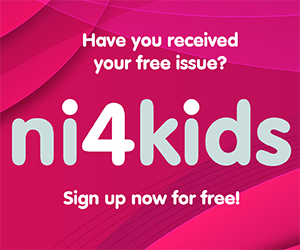A bill which aims to increase the provision of integrated education in Northern Ireland is facing its Final Stage of debate through the Assembly today (Wednesday 9thMarch).
The Private Members’ Bill, brought forward by Alliance MLA, Kellie Armstrong, is seeking to increase the number of integrated schools places and set targets for the number of children being educated in integrated schools.
Integrated schools aim to mix children from Catholic, Protestant and other backgrounds. There are approximately 68 integrated schools in Northern Ireland, accounting for 7% of pupils across both the primary and post-primary sectors.
Integrated education has been on the statute books since 1989 and was later written into the Good Friday Agreement in 1998. Surveys carried out by the Integrated Education Fund and others show that 70% of people in Northern Ireland believe that integrated education should be the norm.
However, there has been strong mixed reaction from across the community to the bill, with many stating their support for it while others are against it.
Indeed, many school principals sent letters to parents stating their belief that, if the bill is passed in its current form, it would mean integrated schools would “have advantages and will benefit from more opportunities for extra places, additional schools and resources including funding”.
The principals said that “all children and young people should be educated together” and added that this was “already happening” in many schools in the controlled sector. They also called on parents to contact their local MLAs if they “shared their concerns”.
However, the Integrated Education Fund (IEF) told Ni4kids that the passing of the bill would “result in integrated education being held to the same level as other sectors”.
“Wanting to advance integrated education is not about detracting from any sector or belittling the achievements of any schools and teachers who work incredibly hard to provide the best education for our children.
“It is not about removing choice, rather working towards providing a place in an integrated school for any child who wants it. Integrated education is a parent-driven movement – no school becomes integrated without a successful parental ballot and this consent is key to successful transformation.”
A spokesperson for the IEF said the bill would “require Stormont to deliver a strategy for provision of integrated education and promote educating children together”.
“It requires demand for integrated places to be monitored and reflected in planning and resource allocations,” they said.
“What it does not do is remove religion from schools or force any school to integrate without the backing of parents and governors.”
The IEF says it would like to see an end to what it calls the “wasteful duplication of the teacher training system” and “area-based planning that is shaped by the community and reflects community needs, particularly in rural areas”.
In 2018/19, 21% of first preference applications to post-primary integrated schools did not result in admission to that school because the school had insufficient places to meet demand. (Northern Ireland Good Relations Indicators Annual Update November 2019 NISRA and The Executive Office).
The IEF said it defines integration as a mix not only in pupils, but in teaching staff and on the school’s Board of Governors.
“Ninety per cent of pupils in Northern Ireland are educated in schools that identify with a single tradition or denomination. Only 7.2% of Catholics attend Controlled Schools and 1.1% of Protestants attend Catholic Maintained Schools.
“Leadership in other sectors may claim that their own schools are mixed, but don’t actively try and attract children and families from other ‘traditions’. We welcome the news that any school wants to reflect society and encourage integration, but the figures do not add up.”
In an open letter issued on behalf of representatives at the Council for Catholic Maintained Schools (CCMS), the Controlled Schools’ Support Council (CSSC), Governing Bodies Association NI (GBA), the Catholic Schools’ Trustee Service (CSTS) and the Transferor Representatives’ Council (TRC), they said they were “unable to support the bill”.
“The legal and financial implications of this bill need to be understood by all elected representatives and taken seriously,” read the letter.
“This issue is neither integrated education nor integrated schools. We believe this flawed legislation is not fit for purpose and will educationally disadvantage over 90% of children and young people.
“Collaboration in education is critical. Prioritising one group of schools above all others will undermine efforts to provide an equitable environment. Those expressing concerns about the unintended damaging outcomes of the flawed legislation have been characterised as self-interested and standing in the way of progress. That view is as inaccurate as it is unfair.”
The letter added: “Legitimate concerns regarding the consequences of the bill for the quality of education provided to all our children and young people must be given due consideration.
“We question what funding will be available, given the scale of investment required for the enactment of this bill. Investment which will have to be directed to one sector.
“For this reason, we are unable to support the bill, we remain committed to working together to ensure children and young people meet their full potential.”
The DUP has said it will oppose the bill and has proposed to use the petition of concern in a bid to veto it. The bill needs 30 Assembly member signatures for a valid petition of concern to try and veto it.
Sinn Fein and the SDLP both support the bill, however the UUP is also expected to vote against it.
In a statement to Ni4kids, bill sponsor, Ms Kellie Armstrong said that any attempt to block the bill’s completion would be “incredibly disappointing”.
“Integrated education has always been one of the priority issues for Alliance,” she said.
“Integrated education does not have a planning authority and the Department of Education has not always been proactive to its statutory duty to encourage and facilitate it, hence why after so many years, there are still so few integrated schools.
“For the past five years, I have completed an in-depth consultation and met with many educationalists, academics, pupils and people interested in the provision of education here. The bill aims to address parental demand and grow community cohesion by making integrated schooling a viable choice for parents across Northern Ireland, meaning all those who want to send their children to an integrated school have the opportunity.
“Some parties have discussed their desire to use a petition of concern to potentially block the bill’s completion. That would be incredibly disappointing, not only for advocates of integrated education, but for all those who want to see Northern Ireland move forward and become a place where we celebrate who and what we are, no matter our culture, religion, socio-economic background and abilities.”





